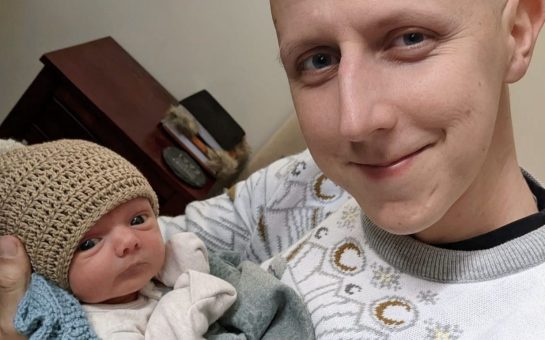Companies should be forced to publish annual data about how many disabled people they employ, according to a Manchester MP.
Debbie Abrahams, MP for Oldham East and Saddleworth, raised the issue in a Ten Minute Rule Bill this afternoon in Westminster.
Ms Abrahams referred to experiences in her own constituency and across the country, and called on the government to tackle discrimination against disabled people in the workplace and help eradicate the barriers they face when seeking employment.
She said: “People with disabilities in Oldham, and across the UK, continue to face many barriers in accessing work, whether they have a visible or invisible disability or illness.
“These barriers may be physical, but they are also cultural, and my Ten Minute Rule Bill is a step towards helping address this prevailing culture.
“People with disabilities should be able to access the same opportunities that everyone else can – including being able to use their talent and skills to the best of their ability.
“No one should feel they are unable to reach their best potential or that their hopes and dreams don’t matter.”
Research conducted recently by diversity consultancy the Clear Company found that 82% of disabled candidates say they have had a negative experience with a recruitment consultancy.
And more than one in three (37%) have been discriminated against while going through the recruitment process, according to a study commissioned by the Recruitment Industry Disability Initiative (RIDI).
By asking employers to report the proportion of disabled people that make up their workforce, Ms Abrahams hopes her bill will make companies aware of their disability employment gap, and by consequence urge them to consider how best to rectify it.
She added: “Although four million people with disabilities are working already, there is another 1.3million who are available to and want to work, but are currently unemployed, this is such a waste of their skills, experience and talent.
“Attitudes, perceptions and judgements can get in the way of identifying someone’s talent or skills. And for people with disabilities this can be even more magnified, particularly in a job interview or at work.
“As a consequence of this, disabled people are twice as likely to be living in persistent poverty compared with non-disabled people. This has implications for disabled people’s families as well. Families with one disabled member make up one third of all families living in poverty.
“With the recent changes to social security support introduced by this Government, including over £23.8billion to be cut from 3.7million disabled people by 2018, according to Demos, the levels of poverty for disabled people and the inequality they experience is set to get worse.”
Philip Connolly, Policy and Development manager of Disability Rights UK, said: “At present only one in two disabled people work.
“Specialist back to work Government support is capped at some £360million per year. That’s about £10 per month for each of the 3.6million economically inactive disabled people so other measures are needed to dent the unemployment numbers.
“One key measure could be for public authorities and businesses to consider this in both their procurement policies and how they select their contractors.
“The Bill would enable businesses to demonstrate they have a good track record and a commitment to employing people from the disabled talent pool.”
Warren, 48, from Chadderton, is a former soldier and military police officer, who has retrained as an accounting technician.
He had an operation for suspected cancer in 2005. It turned out to be benign, but the surgery left him disabled and a type 2 diabetic with high blood pressure, meaning he has to carefully balance his sugar and salt intake.
He has applied for countless jobs since his diagnosis, each time missing to someone else in the latter stages of the application.
Commenting on the bill, Warren said: “I couldn’t help becoming disabled. My operation was completely out of the blue, but suddenly I wasn’t being viewed as a person with considerable experience and a potential asset to a company – but rather as a potential liability.
“I’m ex-army, I’m disciplined, driven to work and like millions of other disabled people, I want to use my experience and talents to work my way off social security and contribute to society. But I feel as though everything is stacked against me.
“I’m really pleased that Debbie is taking on this issue on the behalf of all disabled people who want to work because, unless something changes, companies who won’t take us on will simply carry on wasting the huge pool of talent that is out there.”
Adrian, 50, from Grotton, left his job in 2013, due to suffering from depression as a result of severe workplace bullying.
At the time he did not know that depression was viewed as a disability until he was referred to Remploy, who have been an ‘enormous help’ in his search for a new job.
He said: “It was a very difficult situation for me to go through, and for my family who’ve really supported me, but that chapter of my life is now over and I’m really desperate to get back into work again.
“I’m a strong person and know that I’ll be fine but I do think employers look at mental health issues in your medical records and see it as a weakness.
“I’ve applied for so many jobs now that, even though I’m getting through to the final shortlisting and interviews more often now, I’m pretty convinced that employers do see disability as an obstacle to giving you the job.”
Despite men like Adrian and Warren wanting to get back into work, Ms Abrahams feels that government cuts and changes to policy are only adding to their struggles.
She said that government ‘set the tone for the culture of society’, not only through legislation, but in the subtlety of the language they use and what they imply.
She said: “This Government has made it abundantly clear what their views are.
“From their swingeing cuts to social security support for disabled people; their overhaul of the WCA [Working Capability Assessment] to a process that manages to be both dehumanising and ineffective.
“Not forgetting their new sanctions policy targeting the most vulnerable and under which people have died; to their closure of Remploy factories for disabled people and replacing it with, well, nothing.
“What I, and many others, find so deeply offensive, is the pejorative language that’s been used by the Government as they refer to people receiving social security, including people with disabilities, as shirkers and scroungers.
“The Government, and anyone else who wilfully misrepresent the facts, should be ashamed of themselves.”
The bill went through its first stage and is due for a second reading on March 27.
Image courtesy of Amnesty International, with thanks.



